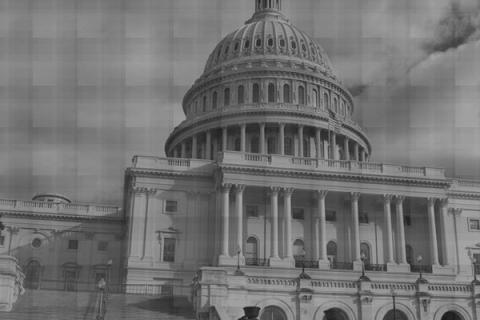
The need for more comprehensive and distinct legal definitions for 501(c) nonprofit organizations was the subject of much deliberation well before news of the IRS targeting political groups made its way into the inspector general's May report.
In fact, this has been an ongoing concern for campaign finance watchdogs and good government groups for years, garnering increased attention following the Supreme Court's decision in Citizens United v FEC.
The calls for clarity in the law have coalesced in the form of the Bright Lines Project headed by Public Citizen. The project is comprised of policy to designate more precise criteria for what accounts for electioneering communications as opposed to issue advocacy.
Several of these are:
- Expressly advocating for the election or defeat of a clearly defined candidate/those affiliated with a political party or via the use of a litmus test (like a pledge).
- Advocating that donations be made to a designated candidate, party or group
- Paid advertising reflecting a view on a candidate in a close race
A center of focus for rectifying the legal murkiness around 501(c)(4) 'social welfare' organizations lies in the tax code. Accordingly, current law only requires that they be 'primarily' dedicated to promoting the social welfare, which is considered by many experts to correspond to no more than 49 percent of the organization's funding activity. Determining what exactly constitutes this 49 percent has become nearly impossible for campaign finance regulators and the IRS alike.
When asked if the project would likely appeal to either Democrats or Republicans, Lisa Gilbert, the director of Public Citizen's Congress Watch Division in charge of the Bright Lines Project, answered:
"[I]t's helpful no matter how you view the issue. If you think about creating a bright lines standard it's essentially helpful for enabling nonprofits to speak because if they understand what they're allowed to do it makes it easier to figure out what they can do. Sort of nonpartisan political intervention... I don't view this as inherently partisan either way and I think if you're just looking at the scandal there are reasons from both sides of the aisle to engage in this. Certainly conservatives would like to see the IRS cracked down on and liberals would like to see an ongoing reform of agencies so they can do their missions."
However, the project has not come without some scrutiny. With faith in the IRS at an all-time low, Rober Bauer, a partner at Perkins Cole and campaign finance law expert, authored his concerns last week.
"[T]urning over a complex standard to the IRS for implementation puts the agency in an impossible position. Complexity means hard judgments; the judgments are about sensitive political matters; and the recent controversy demonstrates, if anything, that the IRS is at risk when making judgments of this nature."
In a response, Greg Colvin, chair of the Drafting Committee for the Bright Lines Project, was confident that the IRS would be able to allocate its resources more effectively following a bright lines reform, allowing it to assess the truly worrisome election activity.
"We believe that our system of definitions and exceptions would reduce the area of IRS discretionary review of facts and circumstances to a small number of cases, maybe 10%," he said.
Keeping discretionary reviews on the table, Colvin argued, provides the flexibility necessary when dealing with something as subjective and complicated as speech.
